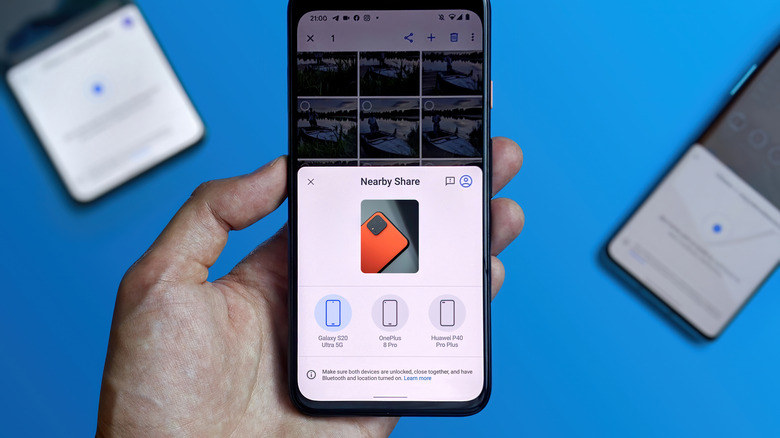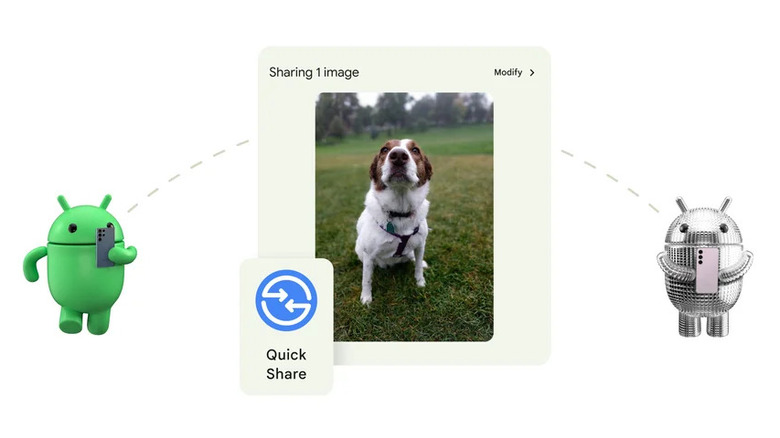Samsung's Galaxy Quick Share Feature Is Coming To All Android Phones (Sort Of)
Android users who rely on wireless file sharing will soon see a major change as Google and Samsung work out their differences. First introduced in 2020, Google's Nearby Share feature allows Android users to share files between devices quickly and seamlessly, and last year, the company released a version of it for Windows PCs as well. Meanwhile, Samsung offers its own Galaxy-exclusive feature called Quick Share. But at CES 2024, Google announced a major change to that paradigm. In a partnership with Samsung, Nearby Share will be rebranded as Quick Share, and the two will be merged into a single feature.
Quick Share is nearly identical to Nearby Share, with the major difference being that it only appears on Samsung Galaxy devices. It's been known to cause confusion for Galaxy users forced to differentiate between the two. But, starting soon, users won't have to parse Samsung's redundant implementation of proximity-based file sharing. Under the name Quick Share, there will be one sharing feature to rule them all, interoperable across all Android, Chrome OS, and Windows devices.
Furthermore, Google is working alongside major PC manufacturers to preload Quick Share onto their Windows devices, starting with LG. That should help people discover the feature without having to download it from Google's website. It's encouraging to see Google taking this feature seriously, as wireless file sharing has become an expected part of any good tech ecosystem. With Apple's AirDrop feature as the standard-bearer, Google competing in the space will hopefully drive further innovation. Google says users should begin to see the new Quick Share in February.
Nearby Share is now Quick Share, ending years of confusion
Merging Nearby Share into Quick Share represents an evolution in the relationship between Samsung and Google, which has been a tense one. As the leading manufacturer of Android devices, Samsung relies on Google's operating system; however, since a plurality of Android users will experience the OS via the Korean giant's hardware, Google is also beholden to Samsung for market share. While that seems like a symbiotic relationship, it has often resulted in a cold war between the two titans. Samsung has its own vision for Android, with its One UI skin being vastly different from Stock Android in many ways. It has a separate app store; its Bixby voice assistant competes against Google Assistant and so on.
For a while, the two companies grew increasingly adversarial, with Samsung trying to develop its own in-house OS called Tizen, which did ship on a few Galaxy Watches. But things seem to have smoothed over in recent years. Galaxy Watches once again ships with Wear OS, and partnerships have become more common. Google even develops special versions of its apps for Samsung's ecosystem, helping to reduce the issue of duplicate Samsung apps competing against Google apps.
The issue with Quick Share has always been evident. Having two features that do roughly the same thing is, at the least, redundant. Users have been confused by the fact that while Nearby Share works between any two Android devices, as well as with all Windows PCs, Quick Share only works with other Galaxy devices. Users who aren't clued into the difference between the two may become frustrated, causing them to abandon both features. That's not beneficial for either Google or Samsung, and the Android ecosystem will be healthier overall as a result of merging the two.

